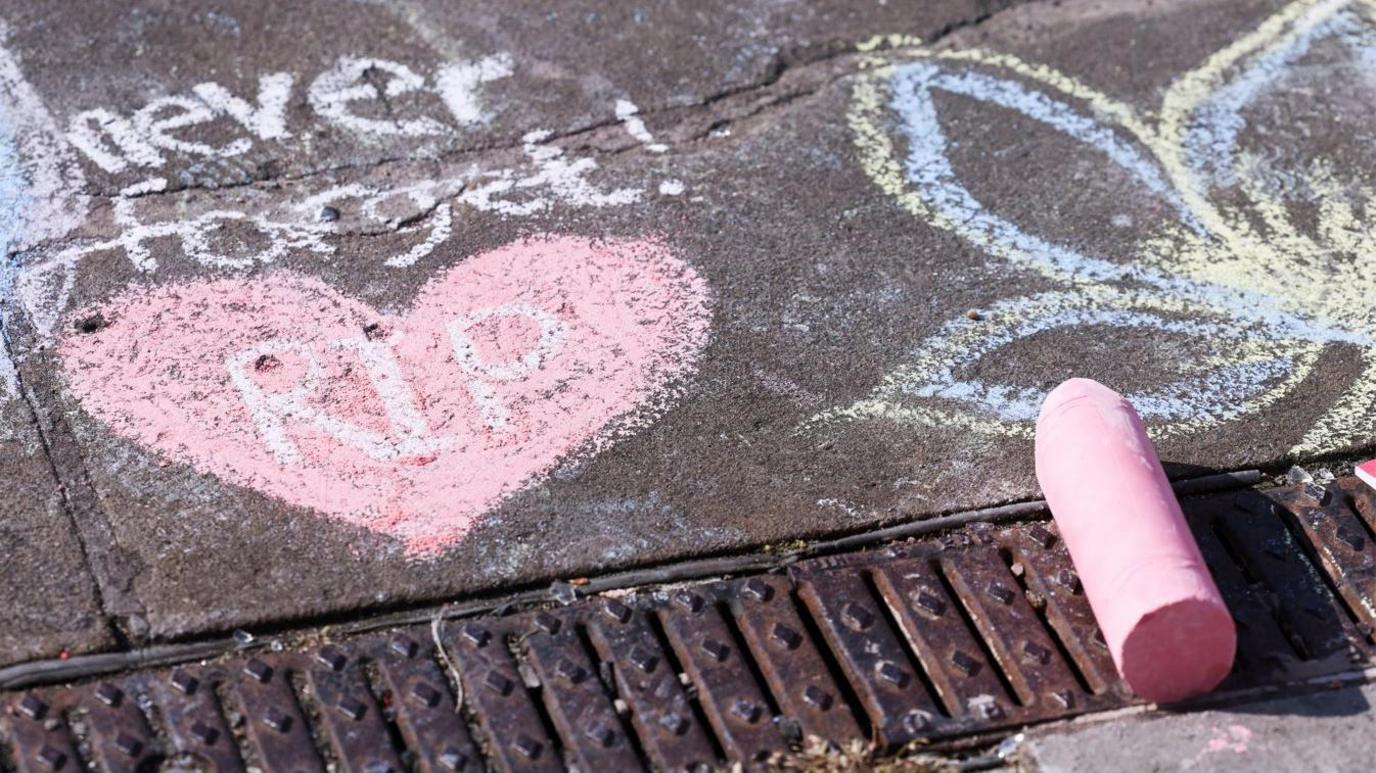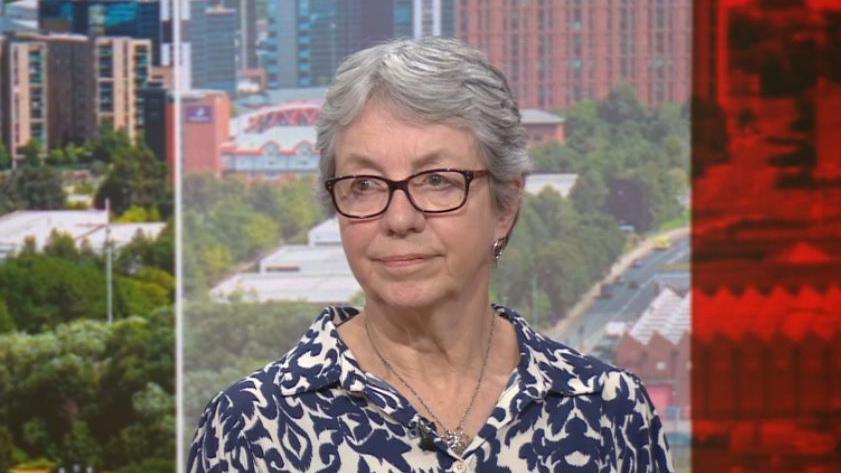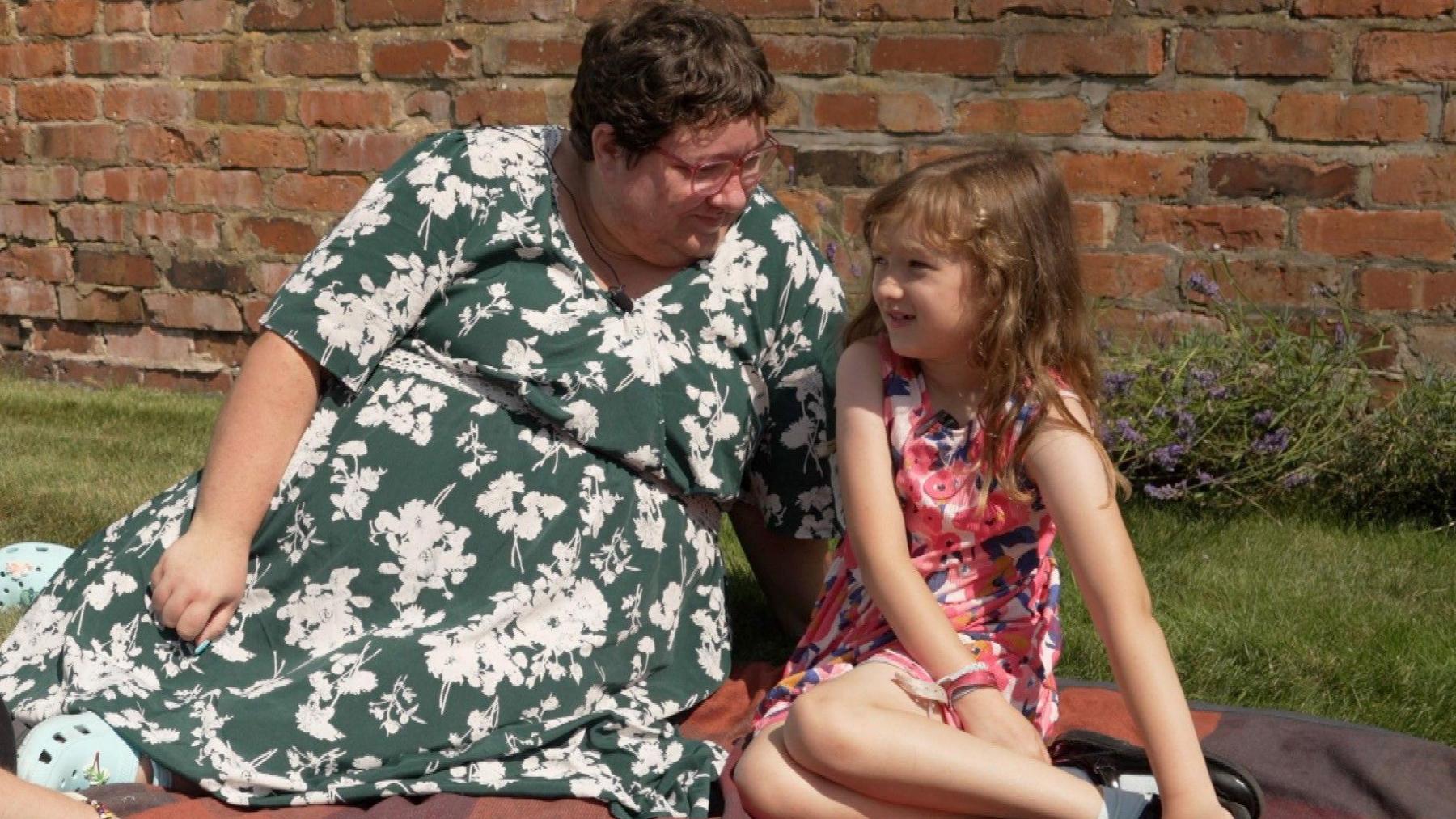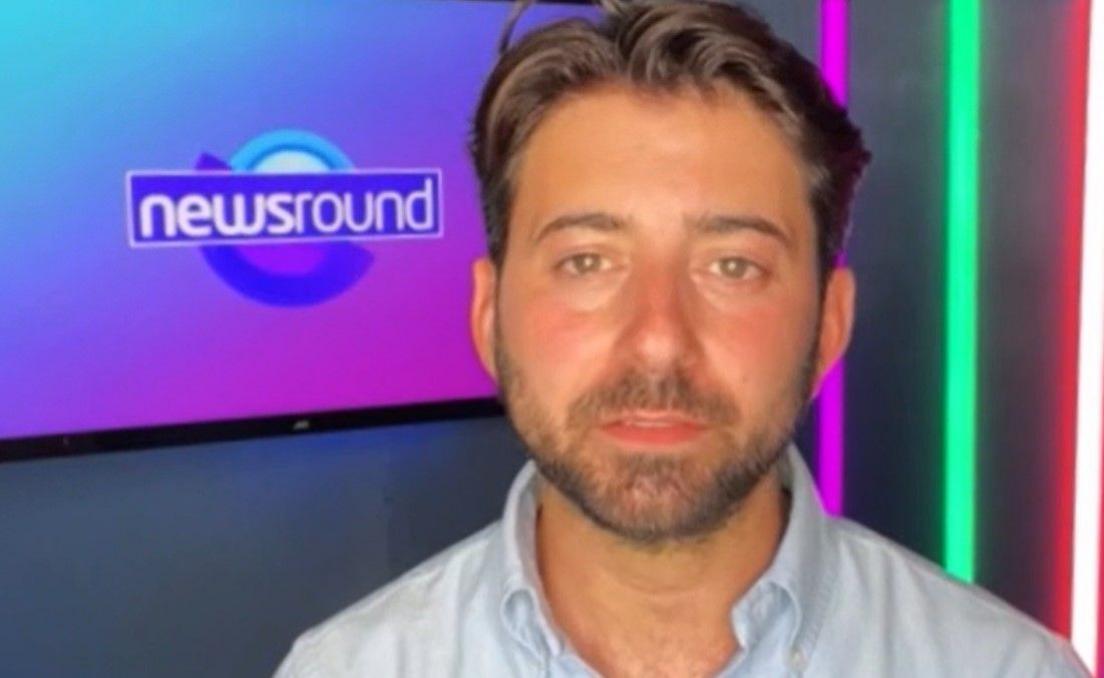Children need 'honesty' from parents over deadly attacks

Children have been seen laying tributes to the victims of the Southport attacks
- Published
A child psychologist has urged parents to be "honest" with their children about a deadly knife attack without "overloading or frightening them".
Three young girls died at a Taylor Swift themed dance class in Southport on Monday, with 17-year-old Axel Rudakubana charged with murder in the aftermath.
Prof Rachel Calam said caregivers should reassure children attacks like this are "incredibly rare" and "everybody is working to keep them safe".
"They may needs lots of extra care over the next few weeks," she said.

Prof Calam said talking to children in "small chunks" would help them understand
Children have be seen laying tributes to the Elsie Dot Stancombe, Alice Dasilva Aguiar and Bebe King, the young victims of Monday's attack.
Others have helped their parents in the clean-up operation in Southport after violent unrest in the town on Tuesday which led to five arrests.
Prof Calam said the riots "work against" reassurance parents give their children, because they add to an "underlying sense of fear", and are something they cannot avoid.
The child and family psychologist for the University of Manchester helped to compile a leaflet giving parents tip on how to talk to children after the 2017 Manchester Arena Attack.
She told BBC North West Tonight it was important to follow the child's lead, listen to them, and find the moment when they want to ask a question or talk about a traumatic incident.
"There's so much going on in Southport, and children will know about it," Prof Calam said.
"Children will be showing immediate reactions, they may be having trouble sleeping, they may be upset.
"Communicate in small chunks so that you know the child is actually picking up on what happened, and understanding."
Parents "shouldn’t be hiding" information "because children might pick up all sorts of different ideas about what’s happened", she said.
The psychologist said "rituals like laying flowers, and helping to rebuild the mosque" which was targeted by rioters, can help young people.
But parents should seek help if children are still showing "high levels of distress" when they return to school or weeks after the attack.
Listen to the best of BBC Radio Merseyside on Sounds and follow BBC Merseyside on Facebook, external, X, external, and Instagram, external. You can also send story ideas to northwest.newsonline@bbc.co.uk, external
- Published1 August 2024

- Published30 July 2024

- Published1 August 2024